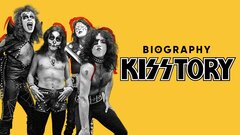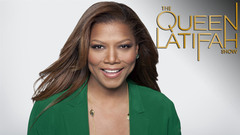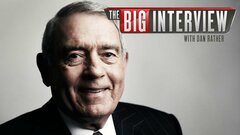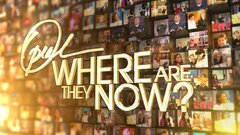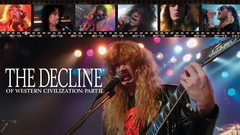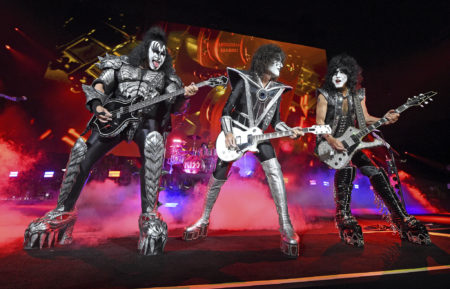The flamboyant, bare-chested and motor-mouthed frontman for the venerable glam-rock group KISS, Paul Stanley was, along with bassist and marketing whiz Gene Simmons, its longest-running member, its chief songwriter and its most tireless champion for over four decades. Decked out in his "Starchild" makeup and costume, Stanley was the consummate rock singer, belting out his group's paeans to girls and the rock star lifestyle like "Rock and Roll All Nite," "Firehouse" and "Strutter" with blue-eyed soul and sass. Off the stage, he frequently propped up the group by pushing them into the studio or on tour when record sales flagged or band members departed. In doing so, he helped to usher KISS from its earliest days through its ascent to stardom in the mid-'70s and back into the spotlight in the late '90s via a wave of KISS nostalgia.
Though he and the group never received the admiration of the mainstream rock press, Paul Stanley and company maintained the loyalties of its countless fans - better known as the KISS Army - many of whom adopted the band as a lifestyle for longer than many of the acts inducted into the Rock and Roll Hall of Fame. In doing so, he became one of popular music's most well loved and recognizable performers.
Paul Stanley began life as Stanley Harvey Eisen on Jan. 20, 1952 in Manhattan, before moving to Queens in his teens. He was born with a Level 3 Microtia, a rare congenital deformity of the outer ear that rendered him virtually deaf on his right side. Despite this setback, which resulted in a difficult childhood due to taunts from schoolmates, Stanley fell in love with music. He eventually attended the New York High School of Music and Art while learning guitar and writing his first songs. He also joined several bands, including the Post War Baby Boom, in his teenaged years, and balanced his musical ambitions with a variety of menial jobs.
In 1970, he was introduced to Gene Klein, a bassist and fellow aspiring songwriter, through a mutual friend. The pair first joined forces in a group called Rainbow, which later renamed itself Wicked Lester. The group recorded an album's worth of demos in 1971, but neither Stanley nor Klein, who would later adopt the stage name Gene Simmons, were pleased with the results, which sounded much like softer rock outfits of the day like Rod Stewart. They quickly abandoned the original lineup and launched a new Wicked Lester with a harder, heavier sound akin to Led Zeppelin or glam-rock hybrids like Alice Cooper or the New York Dolls. After bringing guitarist Ace Frehley and drummer Peter Criss into the fold, the group abandoned the Wicked Lester moniker in favor of a more memorable name: KISS. They also adopted stage "personas," which were marked by heavy makeup and outlandish costumes. Stanley became "The Starchild," whose look involved a star icon over one eye and bold red lips that identified him as a "starry-eyed lover."
Though KISS landed a deal with upstart label Casablanca Records in 1973, the band's first years were marked by commercial failure. Though Stanley and Simmons - who co-wrote the majority of the band's material - could pen catchy pop-rock songs with a bawdy edge, their initial albums failed to reproduce the theatrical excesses of their live show, which featured Simmons drooling stage blood and spitting fire while Stanley regaled the crowd between songs with a steady stream of exhortations and breathless raps, delivered in a voice somewhere between a caffeinated DJ and a street hustler. The logical solution to this issue was a live album, and in 1976, KISS finally landed a hit with Alive! a double live album that featured the Top 40 hit "Rock and Roll All Nite." By the following year, KISS was the most popular band in the United States, with the rest of the world soon following suit. They were also among the first to reap substantial rewards through extensive merchandise, with Halloween costumes, dolls, pinball machines and dozens of other ephemera flooding the marketplace, all bearing the likenesses of Stanley and his bandmates.
In 1978, Stanley and the other members of KISS each released their own eponymous solo albums on the same day. Paul Stanley was the album that adhered closest to the KISS sound, which underscored the understanding held by most fans that Stanley was the architect of the group's music and stage presence, while Simmons maintained the marketing and promotional aspects. Those left little room for Frehley and Criss to do more than play their instruments and write or sing an occasional song per album, which naturally created a schism within the group. The situation was greatly exacerbated by Frehley and Criss' drug and alcohol intake, which ultimately resulted in their dismissal in the early 1980s. The addition of new players did little to prop up the group's fortunes, which by 1983 were faltering with each album. At Stanley's insistence, KISS appeared without their makeup that year, and maintained a consistent if diminished presence on the charts for the remainder of the decade.
The decades-long partnership between Stanley and Simmons also began to fracture during this tumultuous period. Disheartened by KISS's plunge from the heights of success, Simmons turned his attention to acting, as well as producing and managing other acts. Stanley followed suit, and was among the contenders to produce the debut albums of Guns N' Roses and Poison, among others. He also helped to discover songwriter Desmond Child, who penned numerous hit songs for KISS, as well as Alice Cooper, Aerosmith, Cher and Bon Jovi. In 1987, he recorded material for a solo album, which was shelved in favor of KISS's greatest-hits-revisited album, Smashes, Thrashes and Hits (1988). The following year, he launched his own solo tour of the East Coast, where he performed KISS obscurities and material from his 1978 solo album. He also teamed with an all-star lineup of hard rockers, including members of Motley Crue, Def Leppard and Whitesnake, to record the title track for Wes Craven's "Shocker" (1989).
After a lean period in the early 1990s, KISS nostalgia began to build in the middle of the decade, culminating in a reunion of all four original members for an episode of "MTV Unplugged" (1989- ). A 1996-97 worldwide reunion tour, with Stanley and his bandmates wearing their '70s-era makeup, was a foregone conclusion, and its massive success thrust the band back into the spotlight. Stanley and Simmons quickly reassumed their old positions within the band, with the former showing that the passing decades had not diminished his ability to dance in platform shoes or deliver his signature stage patter. Though fully committed to KISS, Stanley devoted much of 1999 to playing the title role in a Toronto production of Andrew Lloyd Weber's "The Phantom of the Opera."
As KISS extended its victory lap into the new millennium - which saw the group once again shed Frehley and Criss over contractual issues - Stanley endured a pair of hip replacement surgeries in 2004. Despite the health setback, he completed his sophomore solo effort, Live to Win (2006), which reached No. 53 on the Billboard 200 chart and spawned a lengthy club tour of the United States and Australia in 2006 and 2007. After rejoining the KISS fold in 2007, he missed his first show in 32 years when he was hospitalized for an accelerated heart rate, from which he quickly recovered.
In ensuing years, Stanley continued to balance KISS with solo projects. He was an ambassador for AboutFace, a charitable organization dedicated to providing support to individuals with facial differences and their families. In 2006, he debuted as a painter, and exhibited many of his works in galleries across the country. That same year, he and Simmons were inducted into the Long Island Hall of Fame alongside Tony Bennett, Billy Joel, and the Ramones. He also collaborated with the teen pop group Click Five on its hit single, "Angel to You (Devil to Me)," and performed a duet with Sarah Brightman on her 2008 album, Symphony. The following year, he co-produced Sonic Boom, which shot to No. 2 on the Billboard 200. As the band circled the globe on a seemingly endless tour of every possible venue that could accommodate their stage show, Stanley set to work on their next album, which was tentatively titled Monster.

